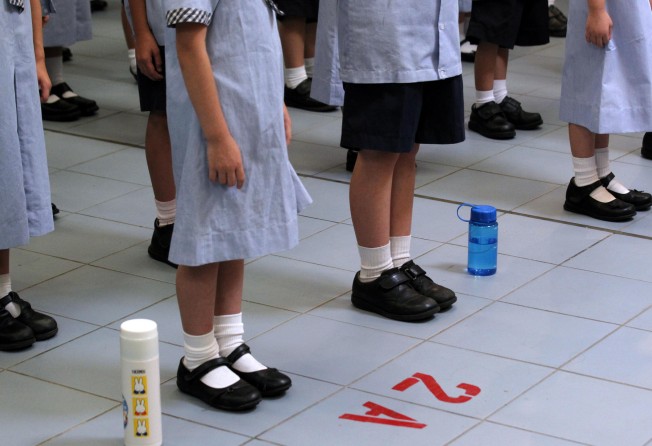Starting and surviving secondary school

Secondary school is undoubtedly a challenge, so Form One students are both excited and nervous when they start the new school year. While teachers like me can offer a few tips, there are a couple of popular books that parents and students might find useful.
In Surviving High School: Making the Most of the High School Years, Michael Reira uses his experience as a school counsellor to discuss most issues students face so they can make informed choices.
High School: The Real Deal - From GPAs to Graduation by Juliana Farrell, Colleen Rush, is another interesting and comprehensive book, examining topics from plagiarism to popularity.
But perhaps the experiences of Saloni Relan and Miyuki Omura, two students who have enjoyed wonderful success at school, can more helpful in dealing with the challenges ahead.
Saloni, who received the ESF Chairman's Award for Excellence for getting nine A* and one A in her IGCSE, has just started the IB Diploma at West Island School. Miyuki is about to read medicine at Leeds University in Britain, after completing her IB Diploma at the French International School. Saloni compares entering secondary school to swimming a big pool that is too deep to stand in.
It's a big change from the shallower pool of Primary Six, where you are at the top, to secondary school, where you start again at the bottom in Form One.
But new students need not be intimidated, she says. Yes, it's a new school with different people, older people, smarter people, but no matter how out of place you may feel, it will work out.
Both girls lay great store by hard work and organisation. Procrastinating is the worst thing students can do. Plan ahead, Miyuki advises, because it not only allows you to be organised, but also to manage time effectively.
In turn, this helps with handing in homework on time and achieving good grades. Although the results may not be immediate, the effort will eventually bear fruit.
Saloni tries to make lots of friends. They help you when you are stuck, encourage you to not give up, and push you to go above and beyond, she says. Together, you will be able to get through, she thinks.
Building a good relationship with teachers is also important. Find a mentor that you can trust, one you can rely on and who hopes for the best for you, Miyuki suggests.
But as important as studies are, Miyuki and Saloni agree that it is necessary to find something you enjoy outside of school.
School will be stressful with homework and projects, so a hobby or some other pleasurable activity is a great way to relax.
Miyuki enjoys social dance, and has kept up the pursuit all through high school. She has become a good latin, tap and ballroom dancer.
She has even won accolades at several amateur competitions, including the first prize in the under-18 category. Saloni's passion is playing netball. Her goal was to get into the school team, and to achieve it she would go to training every week until she made it.
Bullying can be an unfortunate reality in school. It's important to stand up to bullies as soon as possible by talking to a trusted friend, your parents, or one of your trusted mentors because, if you don't, it is just going to get worse.
Miyuki is a big believer in smiling and staying positive. This may not seem like much, but it can bring changes in other people's attitude.
Having a good attitude will help you keep your spirits up when things seem to be falling apart around you, she comments.
High school is a learning experience, so learn from your mistakes, apologise when you need to, and stay true to yourself.
Anjali Hazari teaches IB and IGCSE biology at an international school in Hong Kong